Mazda CX-30 vs VW Golf - Forskelle og priser i sammenligning
Sammenlign ydelse (186 HK vs 333 HK), bagagerum og pris (230700 kr. vs 230300 kr. ) på et øjeblik. Find ud af, hvilken bil der er det bedste valg for dig – Mazda CX-30 eller VW Golf?
Når det handler om økonomi i hverdagen, viser de to modeller interessante forskelle.
VW Golf har en næsten umærkelig prisfordel – den starter allerede ved 230300 kr. , mens Mazda CX-30 koster 230700 kr. . Forskellen er omkring 352 kr..
Der ses også en forskel i brændstofforbrug: VW Golf nøjes med 1.10 L og er dermed overbevisende mere økonomisk end Mazda CX-30, der bruger 5.70 L. Forskellen er omkring 4.60 L pr. 100 km.
Effekt, drejningsmoment og acceleration er de klassiske mål for bilentusiaster – og her træder forskellene tydeligt frem.
Når det gælder motorkraft, har VW Golf en overbevisende fordel – 333 HK mod 186 HK. Det svarer til en forskel på cirka 147 HK hk.
I acceleration fra 0 til 100 km/t er VW Golf tydelig hurtigere – den klarer sprinten på 4.60 s, mens Mazda CX-30 bruger 8.30 s. Det er cirka 3.70 s hurtigere.
Der er også forskel på drejningsmomentet: VW Golf trækker markant kraftigere med 420 Nm mod 240 Nm. Forskellen er omkring 180 Nm.
Familievenlig eller hverdagens følgesvend – hvem tilbyder mest plads, fleksibilitet og komfort?
Begge biler har plads til 5 personer.
Hvad angår egenvægt, er VW Golf en smule lettere – 1307 kg mod 1455 kg. Forskellen er cirka 148 kg.
Når det kommer til bagagerumsplads, tilbyder Mazda CX-30 i mindre grad mere – 430 L mod 381 L. Forskellen er omkring 49 L.
I lasteevne vinder VW Golf minimal – 508 kg mod 496 kg. Forskellen er omkring 12 kg.
Hvem vinder løbet i datatjekket?
VW Golf overgår på næsten alle punkter i den objektive datasammenligning.
Denne vurdering viser kun, hvilken model der scorer flest point på papiret – ikke hvilken af de to biler der føles rigtig for dig.
Omkostninger og forbrug
Se detaljeret analyse
Motor og ydeevne
Se detaljeret analyse
Dimensioner og karrosseri
Se detaljeret analyse
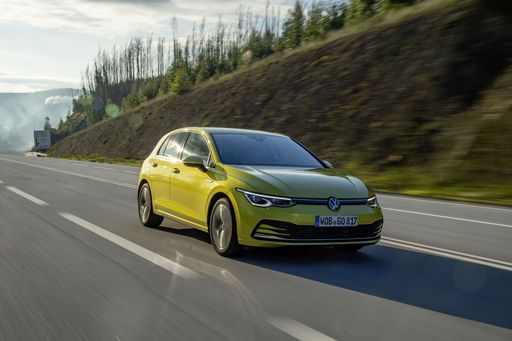
VW Golf
Mazda CX-30
Mazda CX-30 føles som en velkørende fornuftsbil med et strejf af premium, der løfter både bykørsel og weekendture et niveau op. Interiøret er gennemtænkt og hyggeligt uden at blive prætentiøst, så du får en bil der ser godt ud i parkeringshuset og samtidig leverer køreglæde uden at være højtravende.
Detaljer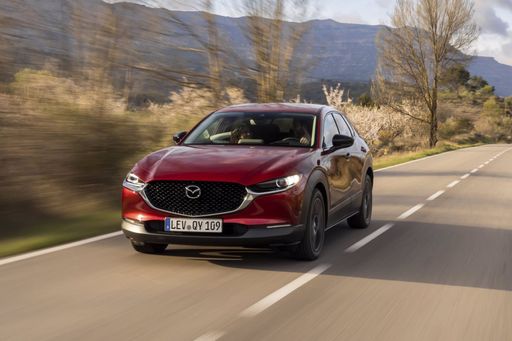
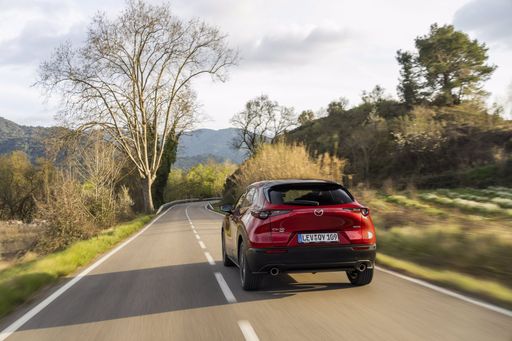
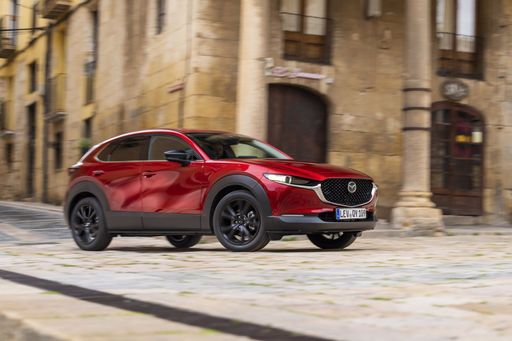
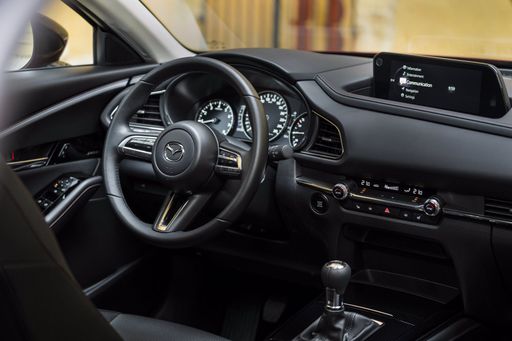
VW Golf
Golf føles som den praktiske, velafbalancerede hverdagspartner — solid, velkørende og med en finish, der stadig sætter standarden i klassen. Den er ikke den vildeste på gaden, men dens trygge, gennemarbejdede karakter og de smarte detaljer gør den til et oplagt genvalg for bilkøbere, der vil have fornuft krydret med lidt charme.
Detaljer
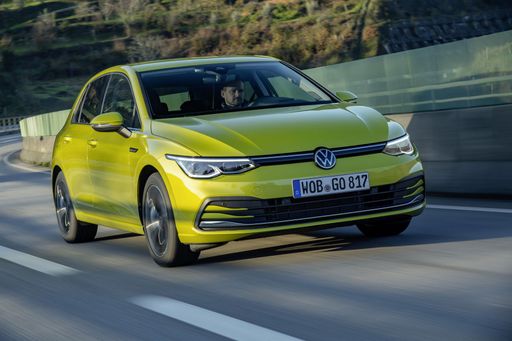
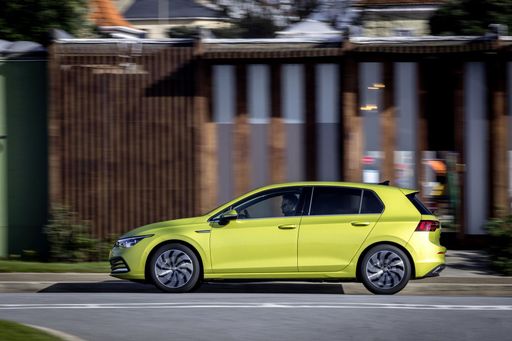
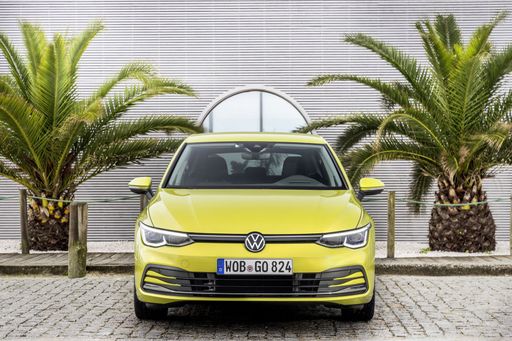
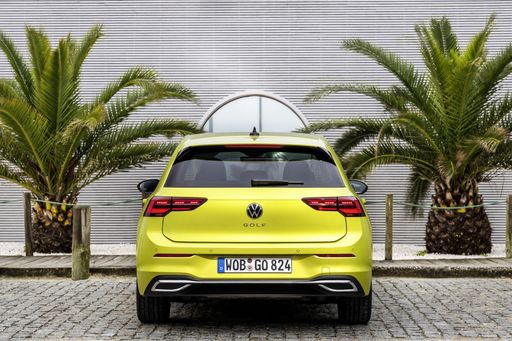
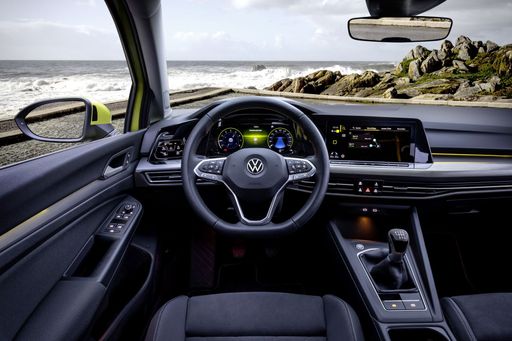
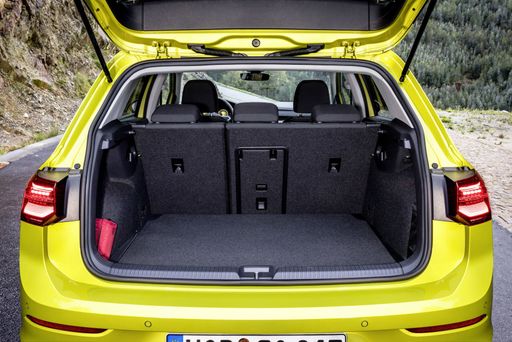
Omkostninger og forbrug |
|
|---|---|
|
Pris
230700 - 336100 kr.
|
Pris
230300 - 435200 kr.
|
|
Forbrug L/100km
5.7 - 6.6 L
|
Forbrug L/100km
1.1 - 8.1 L
|
|
Forbrug kWh/100km
-
|
Forbrug kWh/100km
-
|
|
Elektrisk rækkevidde
-
|
Elektrisk rækkevidde
131 - 143 km
|
|
Batterikapacitet
-
|
Batterikapacitet
19.70 kWh
|
|
co2
129 - 148 g/km
|
co2
25 - 184 g/km
|
|
Tankkapacitet
-
|
Tankkapacitet
40 - 55 L
|
Dimensioner og karrosseri |
|
|---|---|
|
Karrosseri
SUV
|
Karrosseri
Hatchback
|
|
Sæder
5
|
Sæder
5
|
|
Døre
-
|
Døre
5
|
|
Egenvægt
1455 - 1587 kg
|
Egenvægt
1307 - 1662 kg
|
|
Bagagerumskapacitet
422 - 430 L
|
Bagagerumskapacitet
273 - 381 L
|
|
Længde
-
|
Længde
4282 - 4296 mm
|
|
Bredde
1795 mm
|
Bredde
1789 mm
|
|
Højde
-
|
Højde
1454 - 1483 mm
|
|
Maksimal bagagerumskapacitet
-
|
Maksimal bagagerumskapacitet
1129 - 1237 L
|
|
Lastkapacitet
458 - 496 kg
|
Lastkapacitet
438 - 508 kg
|
Motor og ydeevne |
|
|---|---|
|
Motortype
Benzin mild-hybrid
|
Motortype
Benzin mild-hybrid, Benzin, Diesel, Plugin-hybrid
|
|
Transmission
Manuel, Automatisk
|
Transmission
Automatisk, Manuel
|
|
Transmissionsdetaljer
Manuel gearkasse, Automatgearkasse
|
Transmissionsdetaljer
Automatisk dobbeltkobling, Manuel gearkasse
|
|
Drivtype
Forhjulstræk, Firehjulstræk
|
Drivtype
Forhjulstræk, Firehjulstræk
|
|
Effekt HK
140 - 186 HK
|
Effekt HK
116 - 333 HK
|
|
Acceleration 0-100 km/t
8.3 - 10.3 s
|
Acceleration 0-100 km/t
4.6 - 10.2 s
|
|
Maks. hastighed
-
|
Maks. hastighed
202 - 270 km/h
|
|
Moment
238 - 240 Nm
|
Moment
220 - 420 Nm
|
|
Antal cylindre
4
|
Antal cylindre
4
|
|
Effekt kW
103 - 137 kW
|
Effekt kW
85 - 245 kW
|
|
Motorstørrelse
1998 - 2488 cm3
|
Motorstørrelse
1498 - 1984 cm3
|
Generelt |
|
|---|---|
|
Modelår
2025
|
Modelår
2024 - 2025
|
|
CO2-effektivitetsklasse
D, E
|
CO2-effektivitetsklasse
D, F, G, C, B
|
|
Mærke
Mazda
|
Mærke
VW
|
Hvilke drivlinjer findes til Mazda CX-30?
Modellen tilbydes med Forhjulstræk eller Firehjulstræk.
